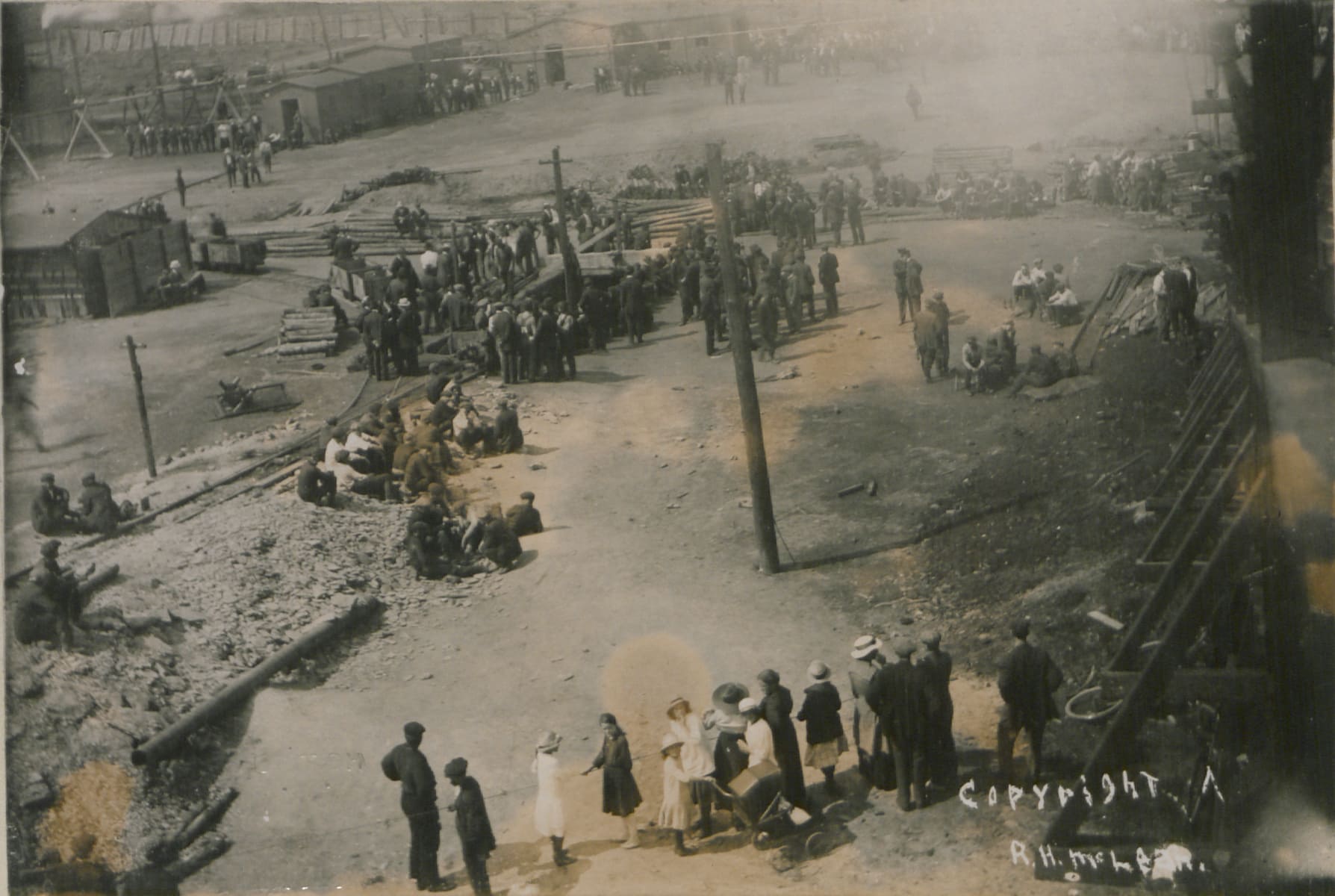
July 25th, 1917 at 7:30 am, the mine whistle at No. 12 Colliery in New Waterford in Cape Breton blew after an explosion rocked the mine some 2,000 feet below ground, killing 65 men and boys. The New Waterford mine disaster left not just the town, but also many families devastated. Shortly thereafter, a grand jury approved criminal charges against officials, but there were no convictions. The sad reality is that, today, we still have too many workers killed on the job. In 1992, we saw the Westray Mine disaster when another 26 men lost their lives. As a result, we have seen Bill C-45 the Westray Bill come into force in 2014. Sadly, very few charges have ever been laid under Bill C-45.
Part of the role of the trade union movement is that we will ensure that we do not forget our deep history of mining in our province, and to continue to fight to make improvements in workers’ Occupational Health & Safety. The fact is, today, we have Bill C-45 the Westray bill, and we are currently still awaiting the justice system to put before the courts more criminal charges when workers die in a workplace facility.
In all the years that have gone by since the New Waterford disaster, or the 26 years since the Westray disaster, our province will just now see its first case under Bill C-45 in the court later this year. That’s right – just one criminal charge here, and very few across the rest of the country. Bill C-45, a piece of legislation since 2014, amended the Canadian Criminal Code becoming law on March 31, 2004. Some 18 years ago and only one charge in Nova Scotia, and fewer than 10 across Canada. Truly, a sad fact.
Bill C-45 established new legal duties for workplace health and safety and imposed serious penalties for violations that result in injuries or death. The Bill provided new rules for attributing criminal liability to organizations, including corporations, their representatives and those who direct the work of others.
Today the labour movement still pushes for stronger penalties when a worker dies in a workplace accident. Today’s world is different – not many coal mines are currently operational; one in Cape Breton, and a few others throughout the country. However, one thing remains the same. When a worker dies, their family is devastated, and children grow up without a dad, or mom, a brother or sister, and often not much as far as penalties go for those responsible. Many unions have built worker monuments in our communities, and every year on April the 28th, we remember all those workers who gave their lives to work, and to pay tribute to the thousands who become sick and or disabled because of a workplace accident.
On July 25th, 1917, 65 people died needlessly, and every day in our country workers are killed on the job. The question must now become; Are those deaths preventable? Often times, when a worker dies in a workplace fatality, there is no criminal investigation under C-45. No worker deserved what happened in 1917, and no worker deserves to die at work in 2018. We need stronger laws and criminal investigations if things are to ever change for the better. In Alberta, the police will now do a criminal investigation of a workplace accident and in Newfoundland and Labrador, RNC will be trained to do the same. In Nova Scotia, we will continue to meet with the province’s safety officials and push for more criminal investigation in all workplace fatalities.
We know that the police are, predominately, the first on the scene at workplace accidents, and they need to understand that they do have the power to do a criminal investigation under C-45. That Bill, C-45 also added Sections 22.1 and 22.2 to the Criminal Code imposing criminal liability on organizations and its representatives for negligence (22.1) and other offences (22.2).
It’s time to ensure that laws like the Westray Bill are actually enforced, and to enact policies and legislation that are more than “feel-good” laws that remain nothing more than good talking points for politicians. Our governments and law enforcement need to work with us to see that proper charges are laid when warranted in a workplace death. It’s time to change the culture of workplace safety.
Those 65 men and boys who died in 1917, the 26 men underground in Pictou County, and every other worker and their family since that time, deserve nothing less than our continued endeavour that criminal charges be pursued so not another worker dies because they went to work to provide for their family.
In Solidarity,
Danny Cavanagh President
If you can, please support the Nova Scotia Advocate so that it can continue to cover issues such as poverty, racism, exclusion, workers’ rights and the environment in Nova Scotia. A paywall is not an option, since it would exclude many readers who don’t have any disposable income at all. We rely entirely on one-time donations and a tiny but mighty group of dedicated monthly sustainers.
Subscribe to the Nova Scotia Advocate weekly digest and never miss an article again.



